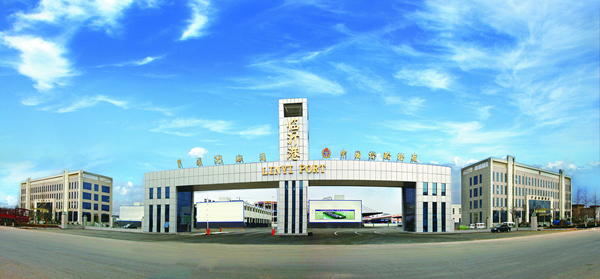Linyi goes global with trade, logistics, digitalization
(chinadaily.com.cn)| Updated : 2025-05-17
Print Print
Modern logistic is transforming Linyi's global connectivity. [Photo provided to chinadaily.com.cn]
Linyi, a commercial hub in East China's Shandong province, is enhancing its internationalization efforts through significant advances in foreign trade, cross-border logistics, and digital infrastructure.
In April, Linyi participated in the Malaysia China Linyi Commodity Exhibition held in Kuala Lumpur, Malaysia. About 60 Linyi-based companies presented products such as sporting goods, textiles, tools, and building materials.
"This is our third exhibition in Malaysia. We've invited local buyers in hardware and daily goods to expand Linyi's market presence,” said Song Liansheng, head of the city's Small Commodities Chamber of Commerce.
To further strengthen its global marketing network, Linyi is also rapidly developing overseas malls and warehouses. The newly launched Lanhua (South Korea) Mall in Yongin, South Korea, aims to become a demonstration center for Chinese consumer goods abroad, offering product displays, buyer meetings, and cloud-based trade support.
Modern logistics projects are also reshaping how Linyi connects with the world. The second phase of the Lanhua Smart Logistics Park recently reached a major milestone. Covering about 16 hectares, the site features smart warehousing, rapid transport systems, and a logistics data platform.
"We are actively expanding truck freight routes and the TIR international logistics, enabling seamless overland cargo transportation between China, Central Asia, and Europe," said Wang Jiaqi, general manager of Linyi Port. He added that the port has attracted over 20 international logistics enterprises and facilitated integrated logistics channels by sea, land, and rail. In the first quarter of this year, Linyi Port dispatched 547 truckloads of goods worth 503 million yuan ($69.86 million).
On the digital front, Linyi is integrating online and offline trade systems. Platforms such as Haoduobao offer more than 30,000 items in multiple languages and link with major e-commerce players like Alibaba and JD.com. Their cloud-based system has lowered logistics costs by 15 percent and boosted inventory turnover by 35 percent.
Talent development and ecosystem building are also gaining momentum. Linyi has held over 50 training events with global e-commerce players including Amazon and TikTok, serving more than 6,000 merchants. The city has rolled out 22 new policies to support logistics development, export expansion, and industrial upgrades.

 Xi's Moments
Xi's Moments  Shandong gains remarkable results in promoting high-quality development
Shandong gains remarkable results in promoting high-quality development  Peonies bridge cultures worldwide
Peonies bridge cultures worldwide